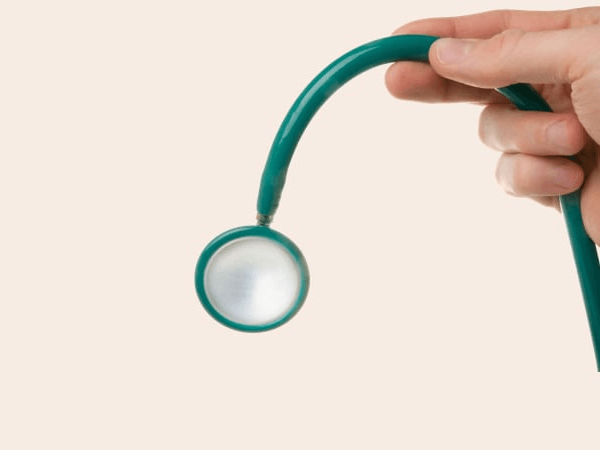No matter your age, you’re certainly not alone in experiencing ED symptoms. Millions of people are suffering from the same problem. Researchers estimate that by 2025, approximately 322 million men worldwide will be affected by ED.
Causes of ED can be physical (like heart disease or obesity), due to lifestyle choices (like excessive smoking and drinking), psychological, or a combination of all three.
In fact, psychological influences are a major contributing factor to ED. Psychological factors can lead to ED, but ED can also impact your mental health. It’s a bit of a vicious circle.

Get treatment for ED 100% online
Connect with a Canadian nurse practitioner from home. Fast approvals, discreet delivery, ongoing support.
ED can feel isolating. You may not feel comfortable talking to your partner, friends, or healthcare practitioner about this condition. But, support is out there. The best thing you can do is start a conversation with your partner, especially if you are having relationship issues.
You can also talk to your healthcare practitioner if you find that easier. Finding the underlying cause of ED means that you can often treat it and begin enjoying your sex life again.
That is if you want to. If ED doesn’t bother you or impact your life, then it’s not a problem. But, if it does, then carry on reading. This article will explore the psychological causes of ED and what you can do about it.
Psychological Impotence Symptoms
ED isn’t just as simple as not being able to get an erection. It doesn’t manifest the same for everyone. Symptoms might include:
- Not being able to get an erection
- Getting an erection, but not enough for penetrative sex
- Being unable to maintain an erection throughout sex
- Reduced sexual desire
If you already know that you don’t have an underlying health problem or lifestyle influence causing ED, the problem could be psychological. Psychological causes of ED (formally known as impotence – but that is not a term used medically anymore) are just as valid as physiological causes.
Is Your ED Physical or Psychological?
ED can be due to several reasons. Although this article will explore the psychological causes in more detail, it’s essential also to know the physical and lifestyle factors that can cause ED. This is because the root cause of the problem will change your treatment options and plan.
A healthcare practitioner may perform several tests to either diagnose or rule out physiological causes of ED, such as:
Physical causes of ED may include:
- Heart conditions – such as heart disease, high blood pressure, atherosclerosis (clogged blood vessels), or high cholesterol
- Diabetes
- Obesity
- Metabolic syndrome – which is a combination of diabetes, high blood pressure, and obesity
- Neurological disorders – such as Parkinson’s Disease, stroke, or Multiple Sclerosis
- Peyronie’s disease – where scar tissue develops in the penis
- Trauma or injury to the spine or pelvis
- Certain medications
- Treatment for prostate cancer
- Low testosterone levels
Your healthcare practitioner might also ask questions about your libido (sexual desire), mood, sexual satisfaction, and stress levels.
Lifestyle factors that may lead to or worsen impotence include:
- Excessive alcohol use
- Substance use
- Smoking
- Obesity
- Sleep disorders
Age can also play a part in ED as it might take longer to develop an erection, or it may not be as firm as you get older.
Common Psychological Causes of ED
Now, let’s explore the psychological issues that can lead to ED and sexual dysfunction. It’s not always a definitive cause. There can be several psychological factors causing ED, or it could also be a combination of mental and physical influences. Common psychological causes of ED are as follows.
Performance Anxiety
Performance anxiety affects people of all genders. Worrying about performing sexually or ensuring your partner is sexually satisfied can be stressful, leading to anxiety and sexual dysfunction.
If you have had a negative sexual experience in the past, it can also impact how you feel about sex with a new partner.
Depression
Depression can impact every part of your life, including your sex life. The overwhelming symptoms can make it difficult to feel pleasure or have any sexual desire. There are well-established links between depression and ED, and the two conditions often coincide.
Anxiety
Anxiety is one of the most common psychological causes of ED. The physical symptoms of anxiety (such as a racing heart, high blood pressure, and increased breathing rate) can extend to sexual function and cause ED.
Stress
Stress, depression, and anxiety are all different conditions but are closely related. You may find that a vicious cycle bouncing between the three occurs.
An erection relies on your hormones, muscles, blood vessels, nervous system, and emotions working correctly and in sync. Stress can impact any of these factors, which in turn can lead to ED.
Guilt & Low Self-Esteem
There is a complex relationship between ED, depression, anxiety, guilt, and self-esteem. Sometimes a single episode of ED can lead to you feeling guilty about not being able to pleasure your partner.
This sense of guilt then builds, leading to further ED, and the cycle continues. Guilt may also come from feelings of low self-esteem. If you have a history of low self-esteem, it can lead to performance anxiety, and again, guilt.
Relationship Problems
If you are having troubles in the emotional aspect of your relationship, then it can impact your sexual relationship. Working through your relationship problems with your partner and a counsellor, if you choose, can help relieve the symptoms of ED.
Porn Addiction
Have you heard of Pornography-Induced Erectile Dysfunction (PIED)? If you watch a lot of porn when masturbating, then it can skew your expectations of sex. You can develop unrealistic expectations of your partner and find it harder to be sexually satisfied. This can lead to PIED.
The physical act of frequently masturbating to porn can also cause hyperstimulation making it harder to gain the same stimulation through sexual intercourse. However, the topic of PIED is controversial and a very debated topic. Research is still very lacking in this area and not robust.
Treatment Options for Psychologically-Induced ED
Medication isn’t usually the first treatment option for psychological impotence. It’s not always a quick or simple fix, especially with psychological causes. It might be that you need to try a combination of therapy, time, life changes, and sometimes medication. But, it is still very treatable.
For psychological ED, it’s best to try and treat the underlying cause using therapies such as:
Cognitive Behavioural Therapy (CBT)
CBT is a talking therapy that can help you manage problems by changing how you think about things and your behaviour. CBT is an effective therapeutic approach to managing ED.
By learning to understand yourself, your thought patterns, and your responses, you can effectively change them to help resolve your problems.
Relationship Counselling
If ED stems from problems in your relationship, it is unlikely to resolve until these problems are addressed. Although it can be challenging to talk with your partner about ED, it can often help you overcome the symptoms and work on relationship problems you are having.
Speaking to your partner about ED and involving them in the process to overcome it is a crucial part of the journey to a more satisfying sexual relationship.
Lifestyle Changes
Smoking, substance use, overusing alcohol, and a poor diet can all cause psychological impotence. Simple lifestyle changes such as exercising regularly, eating a healthy diet, and maintaining a healthy weight can all positively impact improving ED symptoms.
Relaxation Techniques
Stress, anxiety, and depression are all psychological factors that can cause ED. Therefore, if you are struggling with these types of mental health conditions, relaxation can help.
Techniques such as meditation for erectile dysfunction, mindfulness, and diaphragmatic breathing are all positive ways to help you relieve stress and boost your mental health. CBT, meditation, and mindfulness are great treatment options to consider but research is still ongoing in this area.
Medication
ED medication is designed to deal with physiological problems like high blood pressure or vascular damage. To go into a bit more detail, ED medications are a class of drugs called phosphodiesterase type-5 (PDE5) inhibitors.
They block an enzyme (called PDE5) which is found in the walls of blood vessels. By blocking the action of PDE5, ED medications help to maintain adequate blood flow to the penis, which then helps to maintain an erection.
So if the cause of your ED is performance anxiety, stress or relationship issues, it may not help. However, sometimes several factors can be involved, and medication might be part of your treatment plan.
When to Seek Advice from a Healthcare Practitioner
If you are experiencing ED symptoms and don’t know the root cause, the best thing is to speak to a healthcare practitioner. Especially if you have tried lifestyle and relaxation techniques and nothing is working. There may be a physiological problem that needs to be identified and addressed.
In addition, a healthcare practitioner can help you find a therapist who specializes in sex and relationships and help you talk to your partner about your concerns.
It’s also good to try and involve your partner and talk to them about ED. Sometimes, letting the frustration of ED grow and impact your relationship is worse than opening the discussion and dealing with it together.
Want to discuss your treatment options? Connect with one of Felix’s healthcare practitioners today.
And, if you already have a prescription for ED meds, you can transfer it free to Felix. We’re here to make accessing your medication easier so that you can get on and enjoy life.




